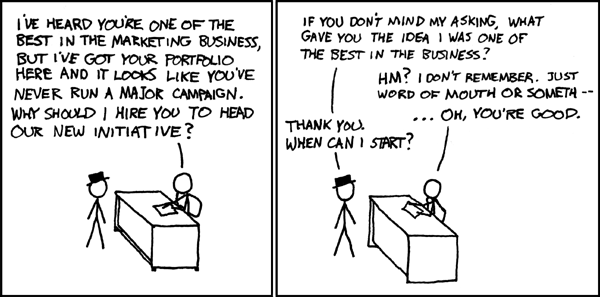But first, an Alec-Dote introduction (Trust me, it ties in):
All throughout high school I worked a summer job at my hometown's swimming pond. No, I wasn't a lifeguard. I also did not teach swim lessons. Before I was promoted to Assistant Manager after years of dedicated service, I was a snack-bar operator. While the guards were off rescuing kids from drowning and the fabled snapping turtle "Melba", I was saving them from dehydration and malnutrition.
 As you may be able to tell, this position was relatively laid back. There was a quote board on the fridge that had humorous one-liners that the staff occasionally blurted out. Considering I was a young individual when I was first recruited (fresh out of 8th grade), I was eager to impress the older, more seasoned employees. So, what better way than to say something funny and get on the quote board? My goal was to make one of those college-girl lifeguards giggle at my sharp eighth-grader wit and charm. However, there was one minor (but crucial) detail. You could not write your own quote. Discouraged by this, I sought out a co-worker of similar age and struck a deal.
As you may be able to tell, this position was relatively laid back. There was a quote board on the fridge that had humorous one-liners that the staff occasionally blurted out. Considering I was a young individual when I was first recruited (fresh out of 8th grade), I was eager to impress the older, more seasoned employees. So, what better way than to say something funny and get on the quote board? My goal was to make one of those college-girl lifeguards giggle at my sharp eighth-grader wit and charm. However, there was one minor (but crucial) detail. You could not write your own quote. Discouraged by this, I sought out a co-worker of similar age and struck a deal."You quote me and I quote you!" I proposed to my new business partner. It was flawless. We would be able to showcase our sense of humor and wouldn't have broken the Quote Board's Golden Rule. The result? Some of the dumbest jokes ever written on a quote board. Ever. The female lifeguards were not impressed. But go back in time ten years and I would have found the material hilarious.
So What's the Deal With LinkedIn Recommendations?
I brought this story up because it's relevant to a recent thought I've had about LinkedIn Recommendations. The professional networking tool allows you to write (and receive) recommendations from past colleagues, co-workers, etc. Essentially, it's anyone who you're networked with on LinkedIn.
But my question is, are they legitimate? Personally, I don't think they are. Like my previous Alec-Dote, I basically had someone write my (awful) joke in exchange for the reverse treatment. While LinkedIn allows you to review the credentials of whoever wrote the recommendation, I feel like a simple sentence or paragraph is an insubstantial amount of information to base a decision on.

When applying for a job, the purpose of a recommendation is for the sake of recommending someone. In LinkedIn's (or my Alec-Dote's) case, a recommendation has the tendency to just be written in hopes of a returned favor. I'm sure this isn't always the case, but I get the impression that it happens all too much. Plus, if you ask a friend to write it and they endorse you something generic like "I really love working with Al", what does that say about me to employers? That my friend likes me?
Plus, there's another problem: recommendations can be seen by everyone. Now at first you may be like, "duh Al, that's the point-- so employers can see my positive endorsements!" But, there was a problem that one of my friend's fathers ran into recently. Several people asked him to write a recommendation, but he only felt that one of those candidates deserved it. So, he only wrote that one recommendation. A few days down the road, those individuals who did not receive recommendations saw that the one co-worker did get recommended while they did not. Did problems arise? Yes.
I still think LinkedIn recommendations need some work before they're considered legitimate. Like the bad jokes that failed to impress the gorgeous female lifeguards, maybe my recommendations will fail to impress employers.
How do you feel about LinkedIn recommendations? Do they need to change or are they fine just the way they are?


